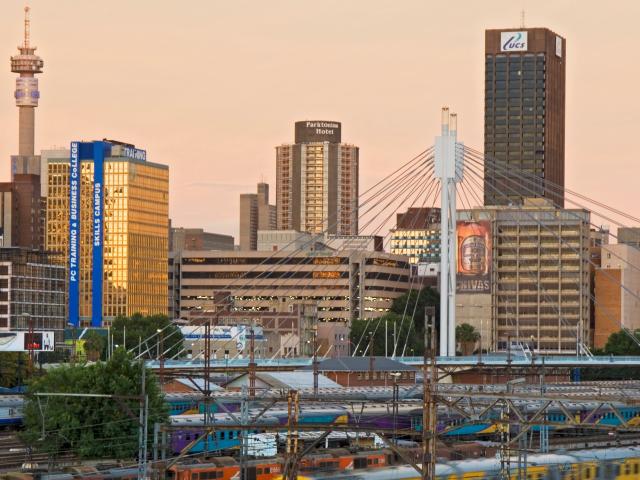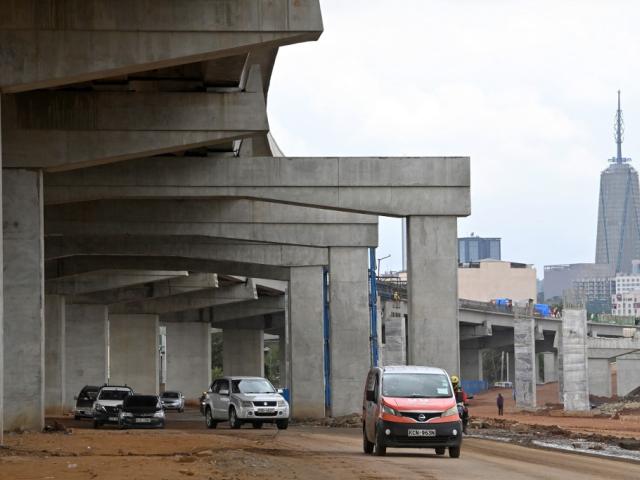In April 2022, former deputy governor of Nairobi Polycarp Igathe announced his bid to govern the prized county which includes Kenya’s capital city.
A few days later, our artificial intelligence (AI) tools picked up a claim in a Citizen Digital news story as to why the position mattered.
“I have put my name, my spirit, my energy on the line to run for the governor of Nairobi county; 40% of Kenya’s GDP deserves competence, patriotism and it deserves humility in service and that is what I have to offer,” Igathe reportedly said.
(Note: The exact quote can be found on KTN News, a current affairs TV channel: “I have put my name, my spirit, my energy on the line to run for the seat of governor of Nairobi county; 40% of Kenya’s GDP deserves competence, deserves patriotism and it deserves humility in service and that is what I have to offer.”)
Igathe repeated the claim in an interview on radio station Spice FM. “For sure there are conversations that are taking place at the leadership level about the city county of Nairobi, 40% of Kenya’s GDP,” he said.
Kenya holds general elections on 9 August. But does Igathe’s claim about the size of Nairobi county’s contribution to gross domestic product (GDP) hold water?
Capital city county contributes about 27% towards Kenya’s GDP
We have contacted Igathe asking for his evidence for this claim and will update this fact-check with his response.
A country’s GDP is the measure of the size of its economy. It is the market value of all goods and services produced in a country in a given period, usually a year. Any economic activity will increase GDP, as long as the activity is recorded. (Note: You can find the definition used by Kenya’s statistics bureau here.)
In August 2019, we vetted a similar claim about Nairobi’s contribution to Kenya’s economy. At the time, the most recent official data showed that from 2013 to 2017, Nairobi’s estimated share of national GDP was an average of 21.7%. That was the first time the statistics agency had measured county GDP.
We asked the agency if it had newer data. Simon Gaitho, a senior manager, told Africa Check that the most reliable figures were in the 2021 economic survey published in May 2022.
The report showed the average contribution to the national GDP for each of the 47 counties in Kenya. This was the gross county product (GCP).
The agency said GCP was “a measure of how much each county contributes to Kenya’s GDP”. It may therefore be interpreted as the “county GDP”.
The data covered the years 2013 to 2020. The agency said it had adopted the eight year average to “control for potential shocks that may have affected some counties more than the others in some of the years under consideration”.
According to the data, Nairobi contributed 27.5% to Kenya’s GDP.
Nairobi contributes significantly more to GDP than other counties
While noting “significant differences in the size of economy across counties”, the bureau said “the biggest disparity is between Nairobi and the rest of the counties”.
The capital’s contribution was more than three-and-a-half times larger than Kiambu, the county in second place, which had a 5.9% share of GDP.
Mombasa (5.2%), Nakuru (4.9%) and Machakos (3.5%) complete the list of Kenya’s top five wealthiest counties, as measured by GDP.
The top counties were associated with large populations in urban centres and were backed by thriving economic activities such as agriculture, manufacturing, transportation, financial and real estate, the data agency said.
Igathe’s claim is therefore off the mark. He is in good company - president Uhuru Kenyatta has also used this wrong stat.





Add new comment